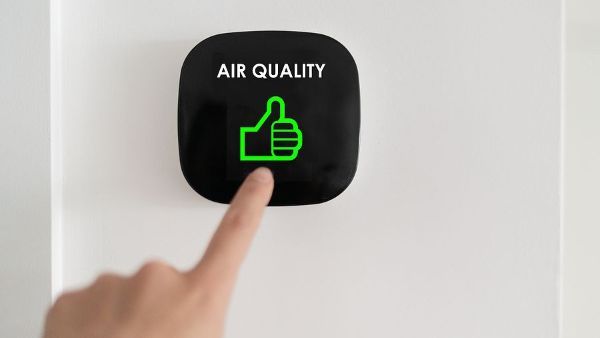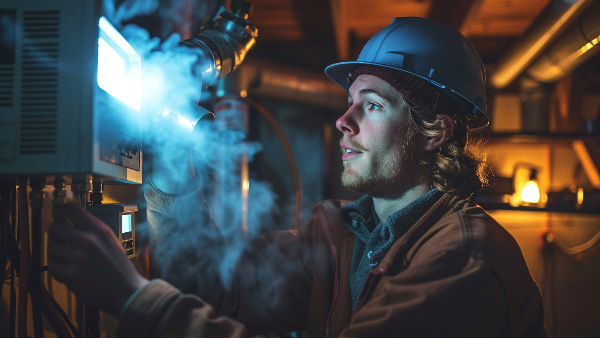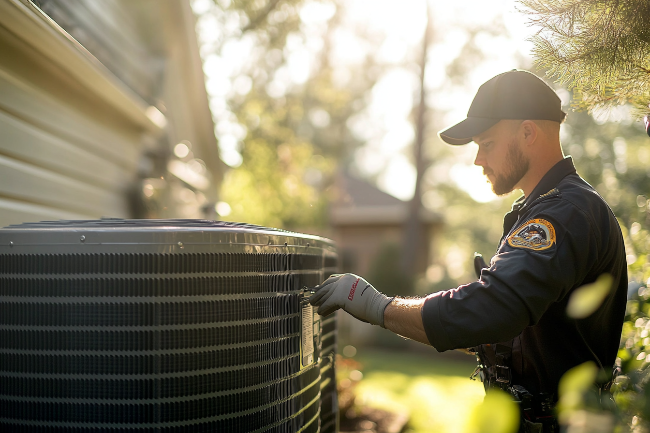GET A FREE QUOTE TODAY - (707) 228-9921
How Pets Affect Indoor Air Quality: 7 Tips for Managing Pet Dander
Do Pets Affect Indoor Air Quality?
Our pets fill our lives with joy, laughter, and unconditional love. However, as any pet owner knows, those adorable little furballs also shed constantly. And, unfortunately, all that pet dander affects indoor air quality. Pet hair can collect dust, pollen, and other allergens, causing problems for your HVAC system and impacting the air you breathe. By understanding how pets impact the air quality in your home and adopting a few practical strategies, you and your family can enjoy a fresher, healthier living environment.
How Pet Dander Affects Indoor Air Quality
When you welcome a furry friend into your home, you also introduce one of the biggest culprits to diminishing indoor air quality. Pet dander! These pesky microscopic particles consist of tiny flakes of skin that can easily float around in the air. They contribute to indoor air pollution, triggering allergic reactions in 10-20% of people with allergies or asthma and affecting everyone else in the house, too. While we often think of dogs and cats producing dander, smaller pets like hamsters, guinea pigs, and ferrets can also add to allergy problems.
Practical and Effective Tips for Managing Pet Dander in Your Home
Keeping pet dander under control creates a healthier living space for you and your beloved pets. The following tips can help you manage pet dander, hair, and similar irritants to ensure everyone breathes a little easier. These simple steps can also improve the way your indoor environment feels and smells.
Keep Up With Regular Grooming
What’s the quickest way to reduce pet dander in your home? Grooming! By brushing your furry friend often, you can catch a lot of loose fur and skin before they end up floating around your living space. If you have a dog with a long coat, try to brush them daily and schedule a trip to the groomer every 4 to 6 weeks. When it's possible, head outside to groom them to cut down on indoor allergens. Also, giving your dog a bath when needed will help keep the dander in check.
Maintain a Cleaning and Maintenance Routine
A solid cleaning routine can also help manage pet dander. Regularly vacuuming your floors, carpets, and upholstery—especially with a HEPA filter—can efficiently capture hair and dander. Also, give your pets' bedding and toys a good wash now and then.
Establish Pet-Free Zones
Consider creating pet-free zones in your home, such as your bedroom, which will control the pet dander, especially if you have allergies. For instance, keeping your bedroom free of pets can minimize dander while sleeping, helping you wake feeling refreshed. If you'd rather have your furry friend close by at night, just remember to wash your sheets more often to keep things clean.
Take Actions to Ventilate Your Home
Ventilating your home is another effective way to boost air quality and reduce pollutants like pet dander. When the weather’s nice, open those windows to let in some fresh air! You might also consider installing ventilation systems, such as air exchangers or exhaust fans, which help keep stale air at bay and ensure a constant fresh air flow.
Use Air Purifiers
Consider using air purifiers with HEPA filters. These devices are great at capturing tiny particles, including pet dander, ensuring the air you breathe is cleaner. If you've got more than one furry friend, a whole-house air purification system could be a smart move for your space. With filters designed to tackle dust, dirt, allergens, and pet hair, your indoor air quality will definitely improve.
Invest in Indoor Air Quality Monitor
Are you worried about how your furry companions might affect your home's air quality? An indoor air quality monitor can provide important information about the specific air pollutants contaminating your home, including pet dander. With this knowledge, you can better manage allergens and create a healthier space for both you and your pets to enjoy.
Consult the Professionals
After taking steps to address pet dander yourself, bring in a pro to help elevate your indoor air quality even further. A skilled HVAC contractor can do wonders for your home environment, from checking your air filters and optimizing your HVAC system to offering advice on air purifying options tailored to your needs. Plus, they can provide regular maintenance, extending the life of your system.
Improve Your Indoor Air Quality with a Santa Rosa HVAC Contractor
Your pets are part of the family, but that doesn’t mean you have to compromise on home air quality. With consistent grooming, cleaning routines, and professional HVAC support, you can certainly minimize pet dander and breathe easier.
If you’re in the Santa Rosa area, our team of experienced HVAC contractors is ready to help you breathe better and live comfortably. Contact us today for a consultation. Together, we can improve your indoor air quality!
Comments
More Posts That Might Interest You
Take Your Home Comfort To The Next Level
Whether you need your furnace replaced or your AC repaired, we've got you covered.

Next Level Heating & Air Conditioning Inc.
© 2018 Next Level Heating & Air Conditioning. All rights reserved.
Website Design and SEO by Fitz Designz








